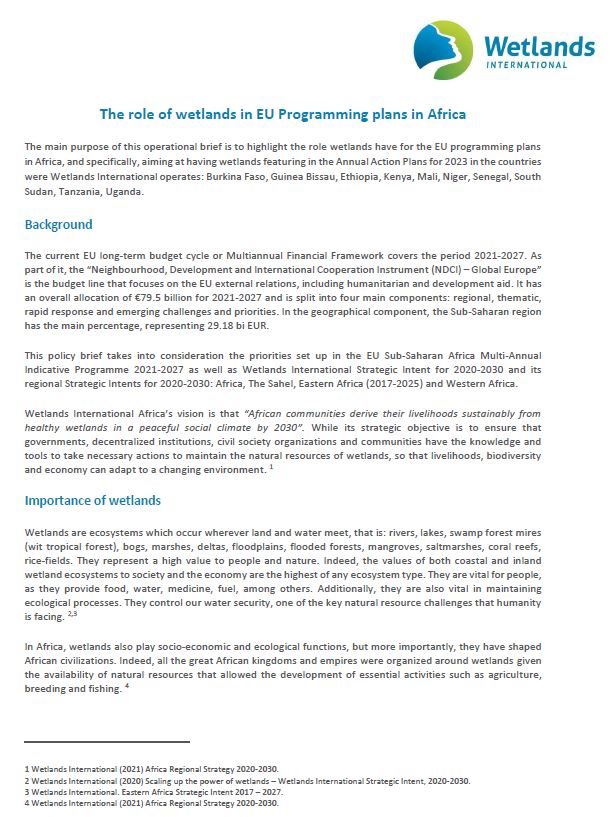
Our position on EU rules for soil health
This paper sets out our position on an EU Soil Health Law, provided to the European Commission in response to its public consultation ahead of the regulatory proposal. Some 60-70% of soil ecosystems in the EU are unhealthy and suffering from continued degradation. Many of Europe’s wetlands, including peatlands, are in poor biological condition.
The European Commission was consulting with a view reflect the public’s opinion in the impact assessment ahead of the proposal for an EU Regulation on Soil Health. We also contributed to a questionnaire accompanying the consultation. The impact assessment will feed into a potential Commission legislative proposal.
We welcome that the EU is taking action to reverse the decline in health of Europe’s soil ecosystems. Wetlands are vitally important for soil health, reducing erosion and holding sediment and nutrients vital for functioning soil ecosystems. As our submission to the public consultation explains, for the legislative proposal to be effective and contribute to addressing the intertwined climate and biodiversity challenges, it should:
- understand the environmental damage of drainage-based peatland utilisation to nature and climate
- recognise and invest in the natural sponge functions of soils.
Land-use change in Europe has resulted in the wide-scale loss of wetlands and soil sponges. This applies particularly to natural wetlands, such as floodplains and organic soils such as peatlands. Europe has lost around 35% of its wetlands in the last 50 years, a rate three times faster than for forests.
Intact wetlands hold great potential for climate and water regulation. One of the greatest benefits of nature-based solutions that improve soil health is their ability to simultaneously address multiple challenges and deliver multiple benefits, making them effective solutions to the most pressing environmental challenges facing the EU and the planet. Therefore, restoring and conserving soil sponge functions offer low-cost and no-regret solutions to store carbon, improve resilience to costly floods and droughts, purify water and protect biodiversity.

